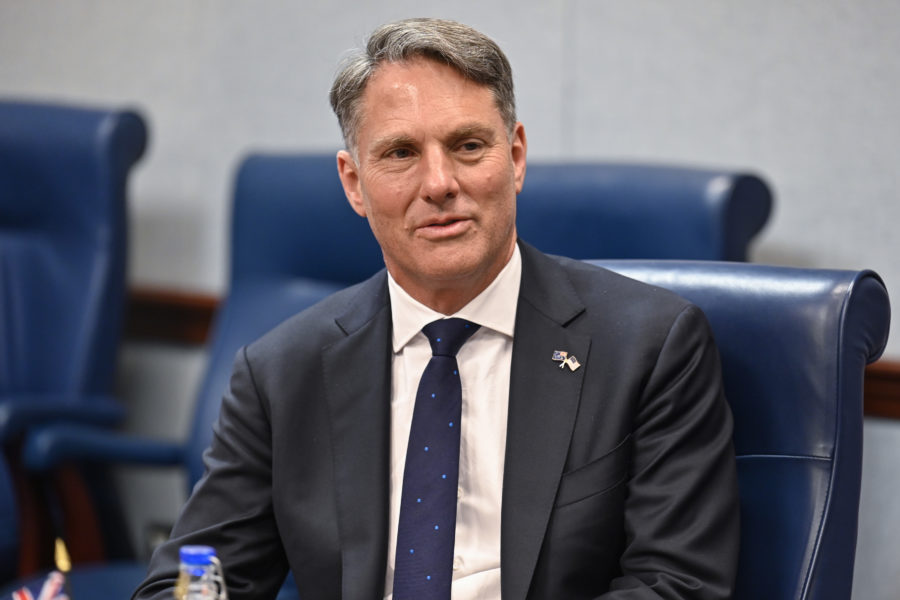Following meetings with U.S. Defense Secretary Lloyd J. Austin III, Australian defense minister Richard Marles said the two countries and the U.K. are working toward creating a “seamless” mutual defense industrial base to draw on the capabilities of all three countries for future defense systems.
Speaking with defense journalists at the Australian embassy in Washington, D.C., Marles, who is also deputy prime minister, said “the focus of the meetings this week” has been to “to collaborate more closely” on defense procurement; specifically, “artificial intelligence, hypersonics, and counter-hypersonics” as well as the previously announced sale of nuclear attack submarines to Australia by the U.S.
“We are building a technology coalition,” Marles said.
Military collaborations under the previous administration will continue under the new administration in Canberra, Marles said. These include previously announced cooperative efforts in hypersonics research, munitions development, use of Australia’s Woomera test range by the U.S., and Australia’s acquisition of F-35 and F/A-18 fighters, among other programs. Air Force B-2 bombers are deploying to Australia for an exercise.
“We see hypersonics and counter-hypersonics as a critical technology; it’s one of those that we’ve identified in the context of AUKUS,” Marles said, “in terms of sharing the technology … and collaborating more in the future on developing the technologies. So we certainly see this area as a significant priority.”
“It is essential that we are developing those technologies for our respective defense forces,” he added.
He contined that the AUKUS nations are seeking “to move from interoperability to interchangeability” in defense hardware” and that Australia’s aim is “not competing with the U.S. [defense] industrial base, but complementing it.”
Marles shot down rumors of Australia seeking to buy B-21 bombers once the aircraft has emerged from development and is in production, saying without elaboration that no such discussions have taken place.
“Announcements will be made in the first quarter of 2023” about the specifics of the submarine deal, Marles said, which will also include U.K. participation as well as what Australia will do for submarine capability while it’s waiting for the new boats. The current class of boats will likely be service-extended, but that won’t be the only solution, he said. He suggested that other new AUKUS cooperative defense programs will be announced in early 2023 as well.
Marles said he doesn’t view the “Quad”—Australia, India, Japan, and the United States—as a “Pacific NATO,” as China has accused the countries of creating. The group is “not an alliance, not a security alliance” but instead “four like-minded countries working together” to promote democracy and prosperity in the region, Marles said.
“It’s not for any other country to say who we should work with,” he asserted.
Asked if he expects the group to grow, he said he expects the members will “want to grow what it does … and grow the agenda.” But he noted that one of the first official acts of the new prime minister was “to attend a meeting of the Quad. That’s very much an indication of our commitment to that architecture and the potential we regard for that in the future.”
